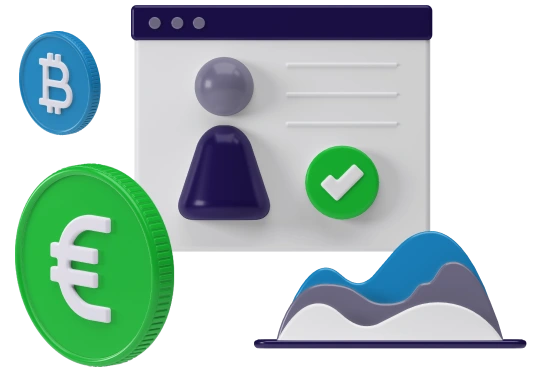If you have had an account with DEGIRO for more than 2-3 years, you will have already heard about Money Market Funds (MMFs) and how they were used by DEGIRO to manage the liquidity of its clients.
DEGIRO was founded as a Dutch online broker. In the Netherlands, the regulator does not allow investment firms (including DEGIRO) to hold clients' money in the form of cash. As a result, clients' funds were converted into shares of MMFs, i.e. recognised funds that mainly invest in triple-A government bonds such as Germany, France and the Netherlands.
The acquisition by Flatex
In recent years, however, DEGIRO was acquired by the German bank Flatex. One of the main advantages of this merger is that DEGIRO was able to take advantage of Flatex's banking licence to offer its clients more convenient and convenient cash management.
Indeed, as of July 2020, DEGIRO started assigning clientsa German IBAN to be used to deposit and withdraw money from their DEGIRO account. With this change, DEGIRO clients' funds begin to be held by Flatex Bank.
For DEGIRO clients, this change has two advantages.
The first advantage is that each client is protected by the German Interbank Deposit Protection Fund. This fund indemnified each client up to a maximum of EUR 100,000. Previously, DEGIRO adhered to the Dutch investor protection scheme, which indemnified each client up to EUR 20,000.
From a legislative point of view, DEGIRO can no longer be considered a Dutch online broker: rather, it can be considered a German bank due to the acquisition of Flatex. Of course, from an operational point of view, DEGIRO will continue to offer the online brokerage services that have distinguished it over the years.
The negative interest compensation policy (until October 2022)
This section explains how DEGIRO clients' funds were managed until the past years, i.e. during the negative interest rate era.
Investing in MMFs generated negative returns due to the negative interest rate scenario. The negative interest earned on MMFs was around 0.70% per annum.
The funds held in the Flatex current account also generated a negative interest of 0.50%. Thus, the negative interest on the Flatex account was, albeit slightly, lower than that generated by the MMFs.
DEGIRO adopted a policy of compensating for these negative returns: it would compensate the first €2,500 held on the cash balance of the DEGIRO account. Above this amount, the negative interest was borne by the client.
Active users (i.e. those who generated more than 350€ commission in 60 days) benefited from the compensation policy for the first 100,000€ held on the Flatex account.
How client funds are managed (October 2022 onwards)
Having passed the era of negative interest rates, the problem of dealing with negative returns on DEGIRO client deposits no longer exists.
The funds of DEGIRO clients are now parked in a deposit account called the DEGIRO-Cash Account.
This account does not generate any return on positive cash balances.
Instead, a debit interest rate of 6.25% is charged to the account in EUR.
At a time when many online brokers and banks offer positive returns on unused cash balances, we hope that DEGIRO will also start to remunerate clients on uninvested cash in their account.
Disclaimer: Investing involves risk.





